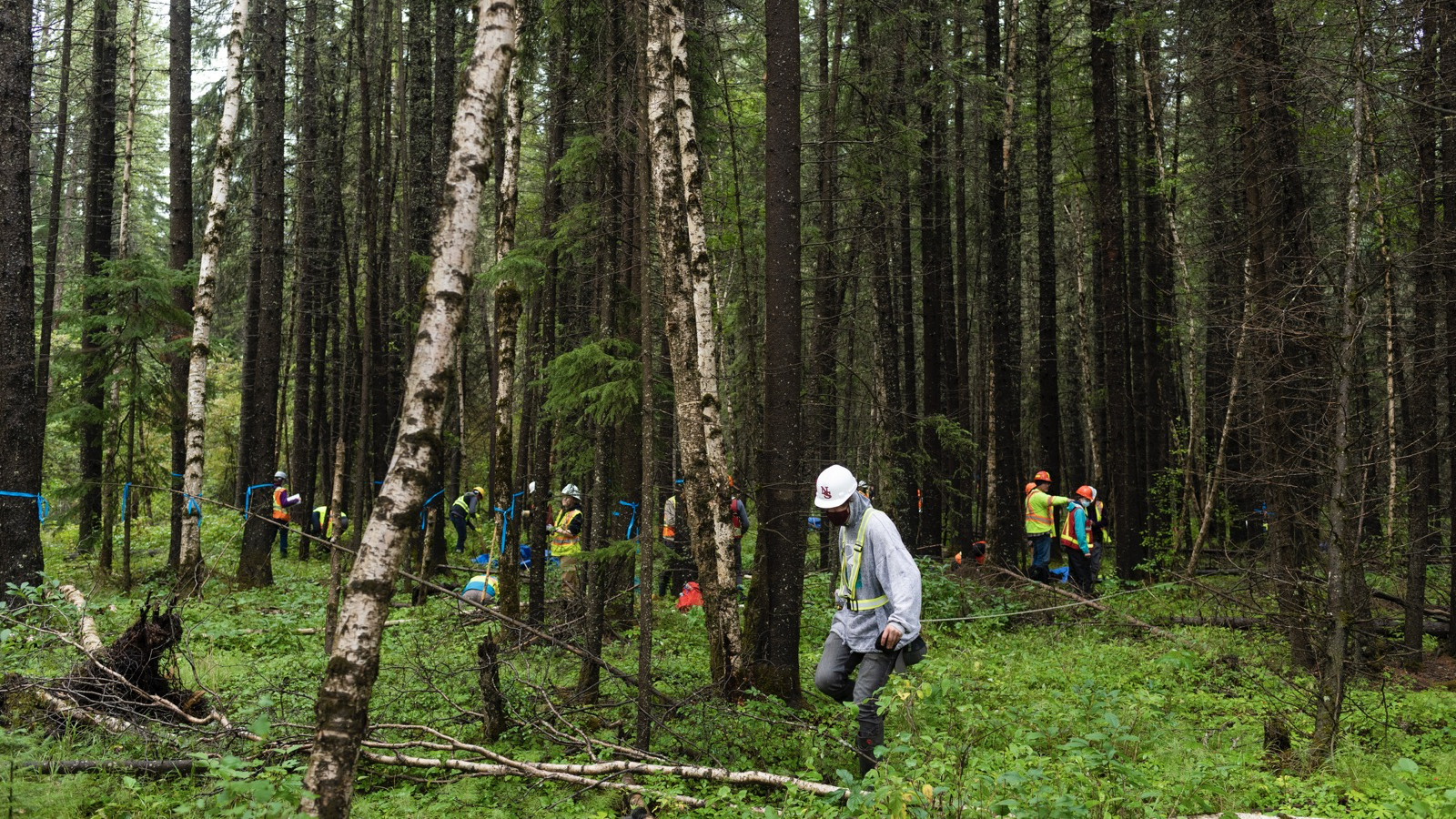What is a Major in Land Reclamation?
Land reclamation is the important process of converting disturbed land to its former or other productive uses. This program teaches you how to assess, mitigate and minimize the impacts of development and resource activities, and to reclaim or restore impacted ecosystems to maintain quality environments. You’ll gain the knowledge and practical skills to conduct contaminant remediation, soil reclamation, and revegetation, as well as environmental assessment and land-use planning. Focus on your area of interest, such as hydrology, soils or plants, and specialize in the skills needed for your dream career in the field, lab or office.
Why study Land Reclamation?
Become a land reclamation expert to help secure the livelihood of future generations while addressing the negative environmental impacts of accommodating our growing human population. This interdisciplinary science is in high demand to improve lands damaged or disturbed by urban sprawl, mining, natural disasters or other development activities. By designing real-world solutions for environmental issues such as land degradation, water pollution, biodiversity and adaptation to climate change, you can have a positive impact on the areas you live and work in.
Featured Courses
A philosophical and sociological exploration of historical and contemporary perspectives on human-environmental relationships and their implications. Explores these perspectives in a framework of critical thinking and through case studies.
Principles and practices of restoring ecosystem structure, function and biodiversity after natural or anthropogenic disturbances. The course focuses on ecological theory and how to apply it to ecological restoration. Topics include landscape processes and connectivity, soil-plant processes, techniques, philosophy and ethics and societal aspects of ecological restoration.
This course will cover various aspects of disturbance ecology, including concepts of disturbance frequency, severity, intensity; ecological resilience and resistance and ecosystem responses to and recovery from disturbance. Students will define what a disturbance is and critically evaluate disturbance types and their characteristics in different ecosystems and their implications for conservation, sustainability of ecosystems, and application to reclamation / restoration.
Chemical processes in soil and related terrestrial environments and the consequences of these processes as they relate to soil productivity, environmental quality and pollution of soil and water. The course describes fundamental chemical concepts such as soil solution and solid phase chemistry, sorption phenomena, ion exchange, oxidation-reduction reactions and speciation of metals. These concepts are used to predict the fate (distribution, transport, bioavailability and transformation) of inorganic and organic contaminants in soil.
Feature Careers
In general, reclamation specialists restore disturbed land to productive condition after it has been impacted by erosion, mining, oil and gas activities, flooding, commercial development or other processes.
Source: Government of Alberta, Occupations in Alberta
- Indigenous perspectives bring ‘feeling and caring’ into conservation planning
- Mapping key areas for conservation could help plants and animals survive climate change
- Researchers take a step forward in turning chicken feathers into water filters
- Professor M Anne Naeth is pioneering land reclamation at the U of A
- Convocation Profile: Veronica Leonard
You may also
be interested in:
Programs related to a major in Land Reclamation:
- ENCS major in Land Reclamation or Conservation Biology can pursue a one-year Master of Forestry to partially fulfill competency requirement to become a Registered Professional Forester
- BSc in Forestry
- BSc in Environmental and Conservation Sciences
- Land Reclamation International Graduate School (LRIGS)

